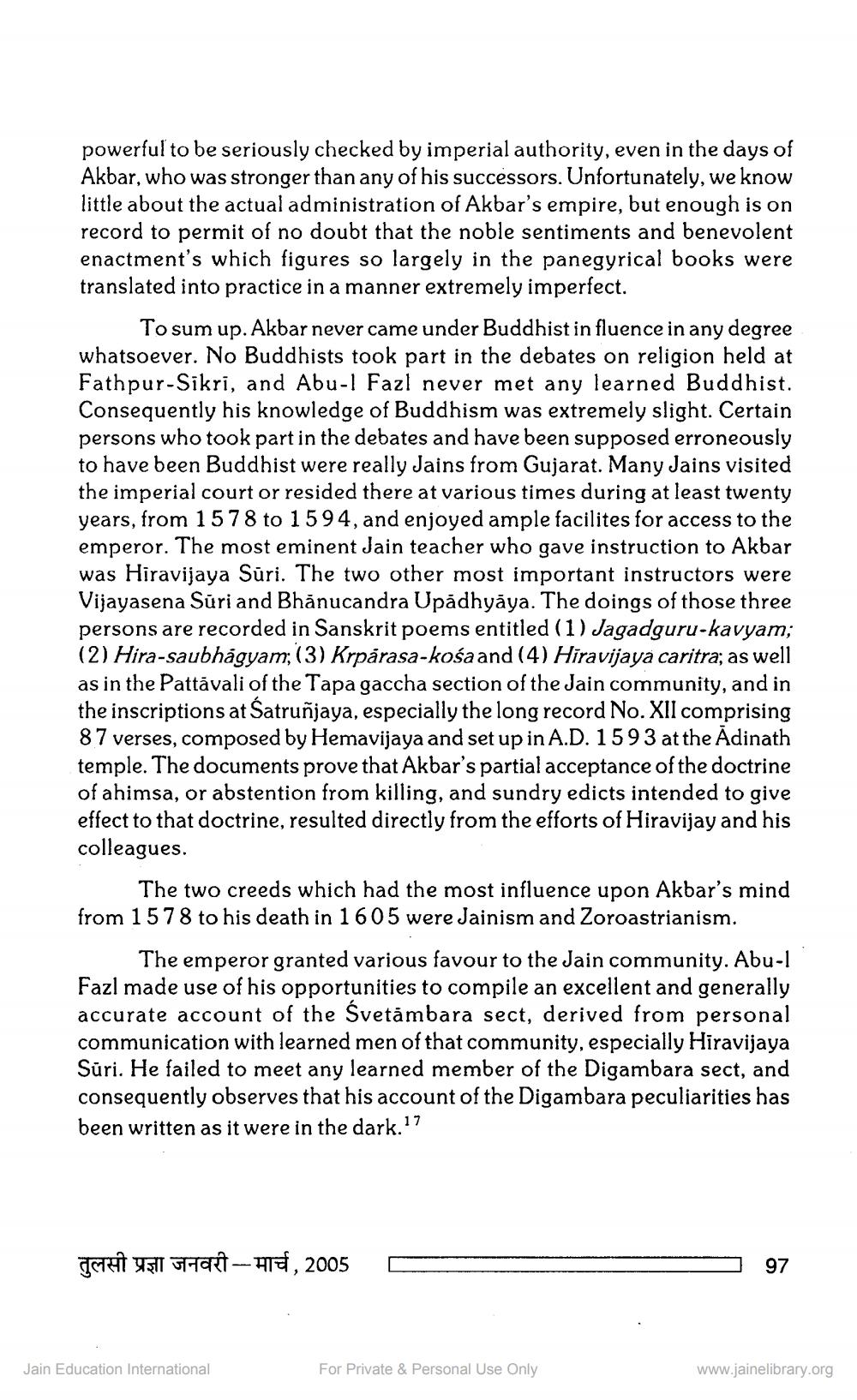________________
powerful to be seriously checked by imperial authority, even in the days of Akbar, who was stronger than any of his successors. Unfortunately, we know little about the actual administration of Akbar's empire, but enough is on record to permit of no doubt that the noble sentiments and benevolent enactment's which figures so largely in the panegyrical books were translated into practice in a manner extremely imperfect.
To sum up. Akbar never came under Buddhist in fluence in any degree whatsoever. No Buddhists took part in the debates on religion held at Fathpur-Sikri, and Abu-1 Fazl never met any learned Buddhist. Consequently his knowledge of Buddhism was extremely slight. Certain persons who took part in the debates and have been supposed erroneously to have been Buddhist were really Jains from Gujarat. Many Jains visited the imperial court or resided there at various times during at least twenty years, from 1578 to 1594, and enjoyed ample facilites for access to the emperor. The most eminent Jain teacher who gave instruction to Akbar was Hiravijaya Sūri. The two other most important instructors were Vijayasena Sūri and Bhānucandra Upadhyāya. The doings of those three persons are recorded in Sanskrit poems entitled (1) Jagadguru-kavyam; (2) Hira-saubhagyam; (3) Krpárasa-kośaand (4) Hiravijaya caritra; as well as in the Pattávali of the Tapa gaccha section of the Jain community, and in the inscriptions at Satruñjaya, especially the long record No. XII comprising 87 verses, composed by Hemavijaya and set up in A.D. 1593 at the Adinath temple. The documents prove that Akbar's partial acceptance of the doctrine of ahimsa, or abstention from killing, and sundry edicts intended to give effect to that doctrine, resulted directly from the efforts of Hiravijay and his colleagues.
The two creeds which had the most influence upon Akbar's mind from 1578 to his death in 1605 were Jainism and Zoroastrianism.
The emperor granted various favour to the Jain community. Abu-1 Fazl made use of his opportunities to compile an excellent and generally accurate account of the Svetambara sect, derived from personal communication with learned men of that community, especially Hiravijaya Sūri. He failed to meet any learned member of the Digambara sect, and consequently observes that his account of the Digambara peculiarities has been written as it were in the dark.17
Tot all halt-HTET, 2005
C
97
Jain Education International
For Private & Personal Use Only
www.jainelibrary.org




